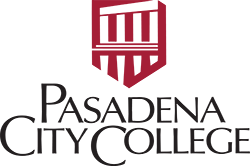Programs & Courses
The LaserTech program covers the creation and application of devices that use light. You will learn how optical components and systems are manufactured, assembled, aligned, and tested. All LaserTech courses emphasize hardware demonstrations, hands-on lab work, and career applications. Classes are taught using National Science Foundation curricula which were written based on industry feedback that incorporates the most in-demand skills.
Opportunities to build industry relationships and earn internships with LaserTech’s network of business partners across the US will be provided via company presentations, equipment demonstrations, shop-floor tours, and field trips.
Earn a certificate, earn a degree, or earn a certificate and a degree!
In less than two years, you can complete the LaserTech Certificate of Achievement via the core LaserTech courses, or add a few more general electives to earn an Associate Degree in Laser Technology!
Laser Technology
Laser Technology Essentials
Upon completion of the program, you will be:
- Equipped with the necessary skills to immediately become a valuable technician in the industry.
- Better prepared to excel in a four-year engineering program
- Capable of expediting graduate school lab work.
- Able to advance your career by mastering more technically demanding job duties.
Core LaserTech Courses
This course introduces the fundamental properties of light, including its interaction with and generation from materials. Optical hardware is used in lecture demonstrations and laboratory experiments to show how light can be controlled. Essential components of optical systems are studied, including lenses, mirrors, prisms, windows, sources, detectors, optoelectronics, polarizers, fibers, and gratings. Students will gain hands-on experience with industrial hardware and tools as they construct basic optical component test setups and systems in the laboratory. There are no prerequisites for this course.
This course details the most important tools that are used when working with light, from lasers and other light sources to cameras and sensors. Photonic devices are used in lecture demonstrations and laboratory experiments to show how light can be generated, manipulated, and captured. Hardware is broken down to its constituent components – lasers are reduced to gain media, pump sources, and mirror cavities; cameras are reduced to the lenses, detectors and processors. Students will gain hands-on experience with industrial hardware and tools in the laboratory. There are no prerequisites for this course.
This course addresses the basics of specification, manufacturing, and assessment of precision optics. It presents an introduction to quality assurance (QA) practices required to identify, inspect, and measure optical components. Materials and tolls found in an industrial optics fabrication and inspection shop are used in lecture demonstrations and laboratory experiments. Students will gain hands-on experience with these industrial materials and QA tools in the laboratory. There are no prerequisites for this course.
This course is a hands-on laboratory course that will detail the measurement techniques required to ensure that a fabricated assembly or system meets its procurement specifications. It covers the design and application of optical metrology instrumentation such as interferometers and modulation transfer function measurement systems. Emphasis is on test applications that are required in quality assurance for optical engineering and manufacturing. Students will gain hands-on experience in the laboratory with industrial hardware and tools. There are no prerequisites for this course.
Optional LaserTech Course
This course provides students an opportunity for supervised work experience. Students extend their classroom-based occupational learning by working at a job related to their major and to their occupational goal. Student, instructor, and employer will cooperatively develop a minimum of three learning objectives. One unit of credit will be awarded for each 75 hours of paid or 60 hours of volunteer employment for successful completion of learning objectives, and for attendance at scheduled seminar sessions. A maximum of four units may be applied toward major requirements or a certificate. There are no prerequisites for this course.
